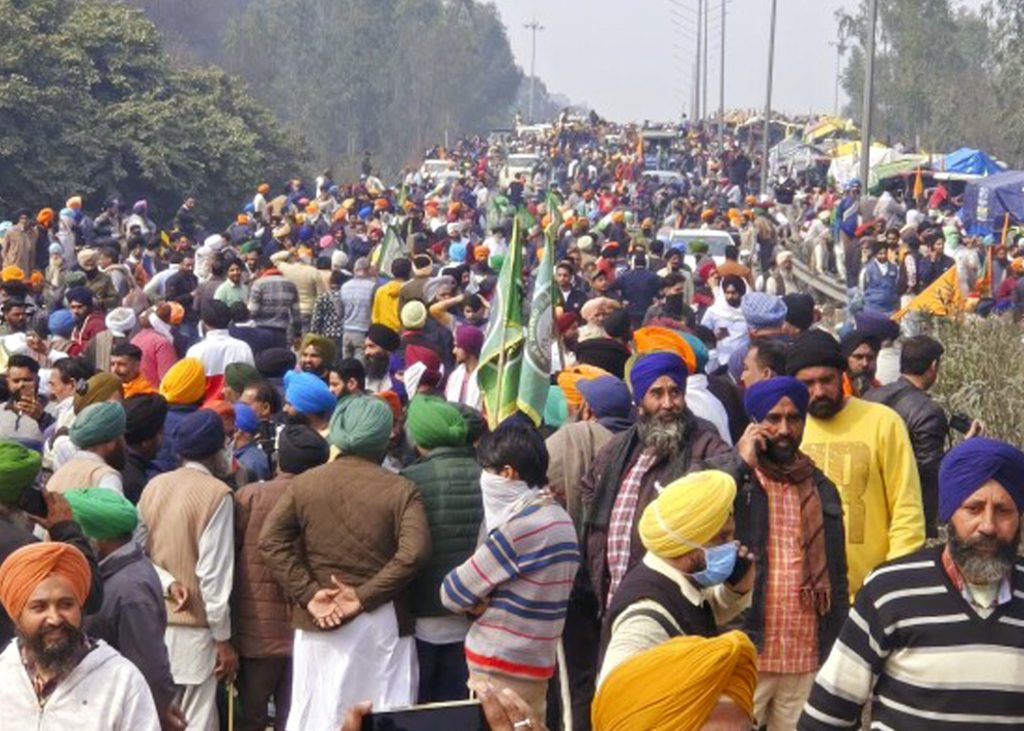
AVN Monitoring Desk
NEW DELHI: In anticipation of protests by farmers demanding minimum crop prices, Indian authorities have taken strict security measures, with police erecting barricades and prohibiting public gatherings.
On the other hand, long convoys of tractors have gathered at the borders between New Delhi and neighboring Haryana state, prompting authorities to deploy a formidable blockade of metal spikes, barriers, and cement blocks to seal off key highways.
The farmers’ call for a “Delhi Chalo” or “March to Delhi” echoes previous protests in January 2021, when they breached barricades and entered the city on Republic Day.
Given the significant role of India’s agricultural sector in the economy, farmers wield considerable political influence due to their large numbers. The looming threat of renewed protests comes ahead of national elections expected to commence in April.
Swaran Singh Pandher, a leader of a nationwide farmers’ association, warned, “Farmers from across the country are prepared to march on Delhi starting Tuesday if the government doesn’t meet our demands.” Apart from a fixed minimum crop price, the farmers’ demands include pensions and loan forgiveness.
To preempt gatherings, Delhi police have imposed a ban on public assemblies of more than five people. In November 2021, Prime Minister Narendra Modi’s government repealed three contentious agricultural laws after protests lasting over a year. These laws were criticized by farmers, who feared they would allow private companies to dominate the agricultural sector.
Government officials are expected to engage in discussions with farming leaders on Monday to address their grievances.
Meanwhile, the Samyukta Kisan Morcha (SKM), a prominent farmers’ association, expressed dissatisfaction with the police’s measures to thwart protests but stated that it would not participate in the planned march. Instead, SKM has called for strikes on Friday to intensify pressure for their demands.
“The efforts to suppress the people’s protest will be in vain,” SKM asserted in a statement. The plight of Indian farmers, compounded by factors such as poverty and debt, is further exacerbated by climate change-induced erratic weather patterns, leading to thousands of suicides annually.






